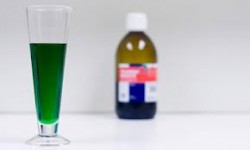Methods Used in Vicodin Detox
Dentists, surgeons and general practitioners prescribe Vicodin on a regular basis to treat pain symptoms caused by a wide range of ailments. While Vicodin does a good job at relieving pain, it also produces feelings of calm and euphoria in the process. These “aftereffects” become the sought after goal once a person becomes addicted to the drug.
According to the University of Maryland Medical Center, an estimated nine percent of the U. S. population has abused opiate-type drugs like Vicodin. These abuse rates speak to the drug’s effects on the mind and body.
For people who’ve abused Vicodin for a long time, Vicodin detox treatment may well be the only way of breaking the drug’s hold over their lives. Methods used in Vicodin detox directly address the physical and psychological damage caused by long-term opiate use.
Using medication therapies and psychosocial supports, Vicodin detox enables recovering addicts to gain a firm footing on the road to recovery.
Vicodin Withdrawal Effects

Medication replacement therapy is one of the treatments for detoxing from Vicodin.
The Vicodin detox stage, while difficult, is an essential first step towards living a drug-free life. Vicodin, a mix of hydrocodone and acetaminophen, exerts its pain-relieving effects by interfering with normal brain chemical processes. By increasing neurotransmitter chemical levels in the brain, users not only gain relief from pain, but also experience a ”high” effect.
Vicodin works by interfering with neurotransmitter processes. Once users start taking the drug on a regular basis, the drug’s effects start to regulate neurotransmitter processes. At this point, normal brain functions rely on Vicodin’s effects.
Vicodin withdrawal effects develop in the absence of the drug or when cutting back on dosage amounts. In a sense, brain regulatory processes “short circuit” causing users to experience distressing withdrawal symptoms.
Vicodin detox treatment allows recovering addicts the time and space needed for brain chemical processes to resume normal functioning.
Medication Therapy Methods
Over time, Vicodin impairs brain chemical processes to the point where actual structural damage starts to develop in key brain regions. Vicodin detox uses medication therapies to support damaged brain processes, which in turn helps reduce the severity of withdrawal symptoms.
Vicodin detox medications commonly used include:
- Buprenorphine
- Methadone
- Naltrexone
- Clonidine
Buprenorphine and methadone work as synthetic opiate agents that mimic opiate effects and thereby eliminate symptoms of withdrawal and drug cravings. Naltrexone, another synthetic opiate, blocks opiate effects so recovering addicts can’t experience a “high” should relapse occur. Clonidine, a non-opiate agent, helps to relieve specific withdrawal symptoms, such as depression, nausea and headaches.
Psychosocial Supports
While helping addicts abstain from further drug use remains the overall goal of Vicodin detox treatment, recovering addicts must still contend with the psychological effects of addiction. Psychosocial supports entail helping a person identify and work through the underlying issues that drive addiction behaviors.
Through ongoing psychotherapy and group counseling, recovering addicts learn to replace destructive drug-seeking behaviors with healthy coping strategies. Most Vicodin detox treatment programs also employ the 12-Step approach, which enables a person to develop healthy interpersonal skills while forming the types of relationships that support a drug-free lifestyle.


 Overcoming Vicodin Withdrawal Symptoms in Detox -
As one of many prescription opiate pain relievers, Vicodin comes with a high potential for dependency and addiction. Compared to other narcotic analgesics, Vicodin effects most resemble those of codeine. Vicodin easily interacts with the body’s own opiate receptors located throughout the central nervous system. The drug’s effects become more pronounced over time to the ...
Overcoming Vicodin Withdrawal Symptoms in Detox -
As one of many prescription opiate pain relievers, Vicodin comes with a high potential for dependency and addiction. Compared to other narcotic analgesics, Vicodin effects most resemble those of codeine. Vicodin easily interacts with the body’s own opiate receptors located throughout the central nervous system. The drug’s effects become more pronounced over time to the ...  Vicodin Detox Timeline -
Vicodin’s ability to enhance the body’s pain-relieving mechanisms leaves users in a debilitated physical state once the effects of dependency and addiction take hold. For long-term users, Vicodin withdrawal effects can be just as harrowing as heroin detox. Becoming familiar with the Vicodin detox timeline gives a person a better idea of what to expect ...
Vicodin Detox Timeline -
Vicodin’s ability to enhance the body’s pain-relieving mechanisms leaves users in a debilitated physical state once the effects of dependency and addiction take hold. For long-term users, Vicodin withdrawal effects can be just as harrowing as heroin detox. Becoming familiar with the Vicodin detox timeline gives a person a better idea of what to expect ...